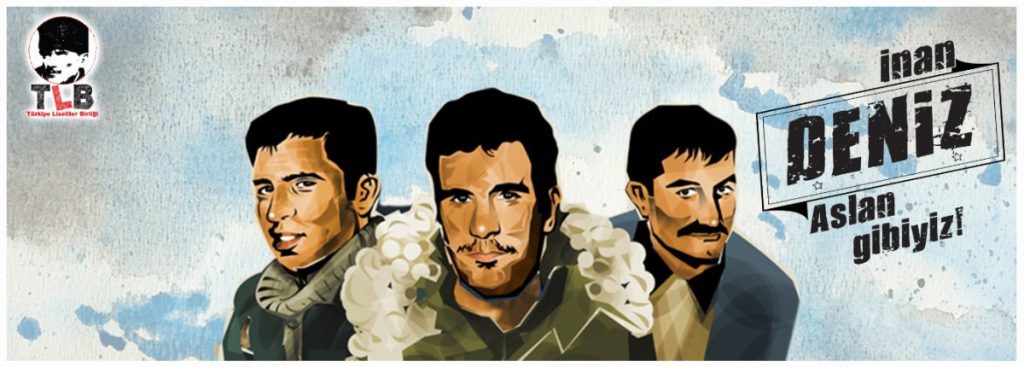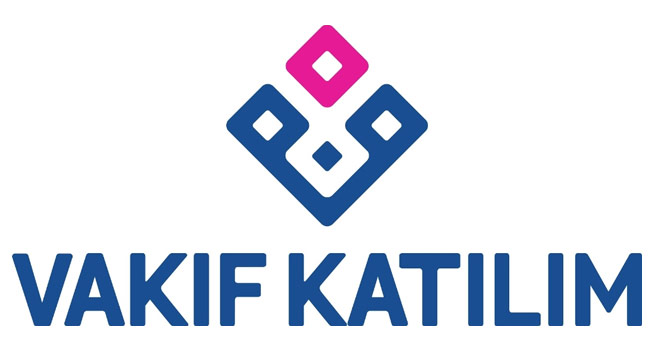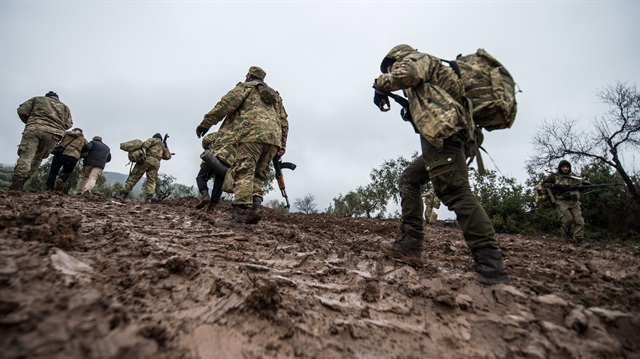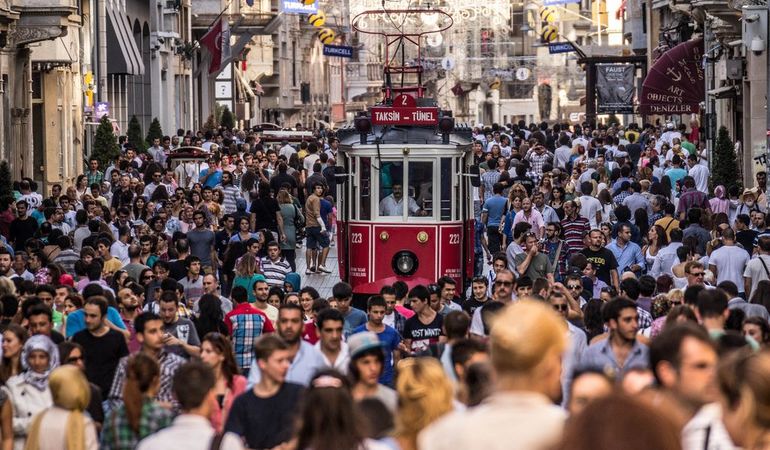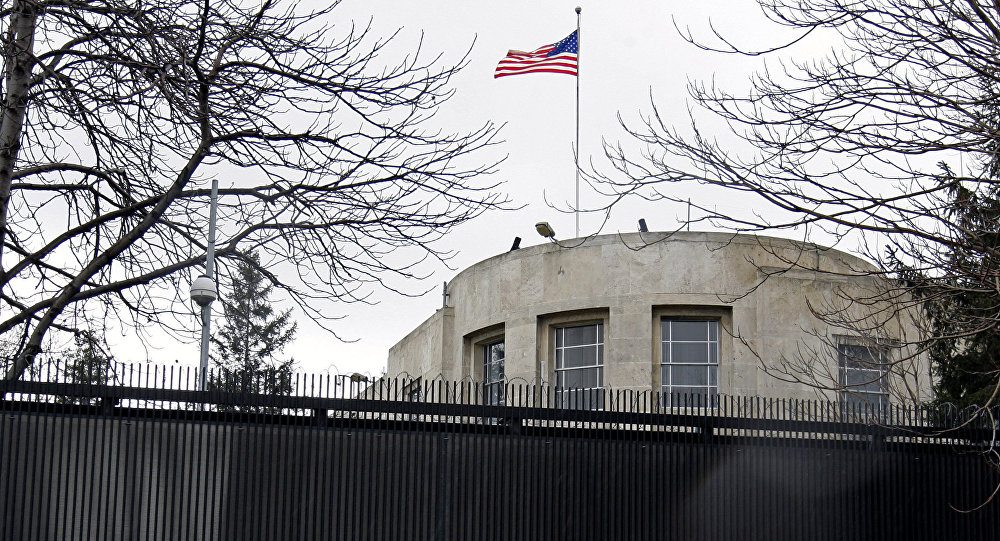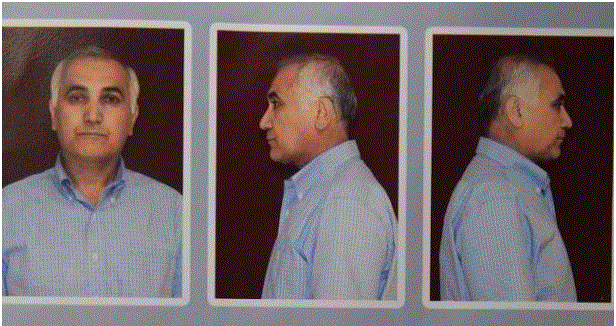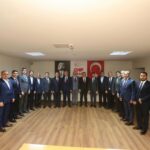In the previous article, I noted that the international press is confused about how to label the Turkish Youth Union (Türkiye Gençlik Birliği – TGB). I then went on to explain how nationalist terminology and sentiments have come to play an important role in Turkish leftist rhetoric (1). I now want to look at the TGB’s own website, and the information it advertises, in order to illustrate why this group should be understood as fundamentally leftist and Marxist despite its militant nationalist rhetoric. My argument is that classifying the TGB as “nationalist” or “ultra-nationalist” dramatically misleads foreign readers trying to understand the different political groups in Turkish society.
For example, Daily Sabah has mentioned that the TGB took part in the 2013 Gezi Park protests, but has also pigeonholed them as “ultra-right” (2). That should be extremely confusing for a foreign reader who knows that participants in the Gezi Park protests were mostly young university students who were generally regarded as politically progressive. How could an “ultra-right” group have taken part in the Gezi protests? The answer has three aspects. The first is that the TGB is not actually “ultra-right” as Westerners understand the term. The reason lies in the issues I explained in the previous article: Turkish leftists have always had a strong streak of nationalism in their ideological makeup. Even though, from the standpoint of strict political theory, it should not be possible for a Marxist faithful to the origins or “classical” form of Marxism to be nationalist, in fact many colonial, semi-colonial, post-colonial or newly industrializing societies have seen a “left” variant of nationalism grafted on to Marxism through anti-imperialism.
Second, the progressive students, so-called, at the Gezi protests also embraced ideas that sometimes were not so progressive. The Gezi Park demonstrators were largely from the Turkish upper and upper-middle classes, which is why the event was dominated by university students with a modernist, non-traditionalist, non-conservative outlook, but that did not and does not make them “progressive” across the board. For Turkish progressivism throughout the 20th century has been embodied in first the Unionists, meaning the Committee of Union and Progress of 1908-18, and then the Kemalists from 1919-22 or 1923 onward, both of which have represented a combination of (authoritarian) modernism with a high level of nationalism. Otherwise put, this kind of nationalism covers not only the socialist left but also Kemalism — indeed, primarily Kemalism, and then by extension also a Marxist left that has always been nestling under the overall umbrella of Kemalist progressivism.
Third, the Gezi Protests were not really issue-oriented (although they began with environmental protests and then escalated as a result of wanton police brutality). Instead, once they got going they primarily targeted the AKP and then-PM Tayyip Erdoğan. That enabled protestors of whatever political stripe who felt they had some sort of grievance against the governing party to vent their anger. At the same time, it has to be stated that the Gezi Protests were almost entirely devoid of parties, groups, or activists coming from the political right. It was largely an event for those who saw themselves on the political left. And it is celebrated and commemorated by the Turkish left to this day.
The TGB does not openly advocate Marxism. This has to do with the twists and turns of its once explicitly Maoist parent organization, which used to be called the Workers’ Party (İşçi Partisi), but has renamed itself the Patriotic Party (Vatan Partisi) so as to become (they have been hoping) more nationalistically presentable. At the same time references to its Marxist origins are always there between the lines, basically for internal legitimacy purposes. The rank and file have to be repeatedly told that the party and the TGB are fundamentally Marxist, but only tactically pursuing a nationalist line in order to create a broad united front against global forces (including American imperialism), as well as their lackey the AKP, that are all said to be threatening to destroy the legacy of Kemalism and therefore the present Turkish nation-state. This is reflected in the contents of the TGB’s website. Every 1st May, for example, the TGB openly and proudly advertises its participation in Labor Day protests and its support for the working classes. For example, the TGB has published an article describing the May Day activities of its Eskişehir branch under the heading “Workers and Young People, Rally Hand in Hand to the Patriotic Struggle” (İşçi Gençlik El Ele Vatan Mücadelesine) (3). I quote from that article:
The Turkish Youth Union’s Eskişehir branch marched with the slogan “Workers and Young People, Rally Hand in Hand to the Patriotic Struggle.” [The TGB] marched in solidarity with workers against those who, through a new Constitution, are trying to legalize temporary labor, who are trying to abolish even the existing rights of workers in order to totally enslave them, who are busy selling our factories and all machinery that should be working for Turkey to American, Israeli, and European capital — against all such national traitors and enemies of labor. Throughout the march, the TGB emphasized the cause of both labor and the homeland, also expressing its support for the little Mehmets [the ordinary Turkish soldiers] who are now burying separatist terrorists in their own trenches. Enthusiastically applauded by the workers as they entered the rally site, the TGB called on everyone, including especially young people, to unite and pursue the common struggle. (4)
Ever heard a right-wing party express ideas like those? Probably the most interesting aspect of that article is the fact that 1st May is not even mentioned, and neither is Marxism, socialism, or communism. However, the rhetoric and jargon — except for the anti-semitic bits and the nationalist support for the Turkish army — are entirely Marxist. One picture in the article features TGB members giving the classic communist upraised fist salute.
Yet there is another article that more directly associates the TGB’s activities with 1st May. The TGB’s Zonguldak branch has advertised its May Day activities in an article titled “TGB Zonguldak is at the 1st May Rallies” (TGB Zonguldak 1 Mayıs’ta Alanlarda)
Chanting slogans like We are Mustafa Kemal’s soldiers, Down with the PKK, We are all Little Mehmets, the PKK cannot defeat us, or Workers and youth hand-in-hand for a completely independent Turkey, the TGB youth infected the patriotic working-class people at the rally with enthusiasm. Later the marching column paused at the Miners’ Monument. (5)
How about the Turkish left’s most beloved martyrs, Deniz Gezmiş and his comrades? They are also openly commemorated by the TGB’s secondary education branch, the Turkish High School Students’ Union (Türkiye Liseliler Birliği – TLB). On 6th May 2016, in order to commemorate the 1972 execution of Deniz Gezmiş, Yusuf Aslan and Hüseyin İnan, the TLB held rallies in 30 different cities. Typically, the TLB’s statement offered a merger of Kemalism with leftist insurrectionism: “In order to make sure that Atatürk is not eradicated, and for our homeland, our high schools, and our future, on 6th May we shout: We are like İnan, Aslan, and Deniz!” (6)
This sort of rhetoric could be brushed off as harmless if it weren’t for the fact that the three young men referred to had committed various acts of violence as part of an armed struggle, a “people’s liberation war” which they considered to be dictated by Marxist-Leninist ideology. Deniz Gezmiş, for example, was a law student who was repeatedly arrested for violastiond of public law and order, saw guerilla training in Jordanian PLO camps, and came back to pursue a brief career of shooting up police stations, bank robberies, and kidnapping. This is the “role model” offered to the TLB’s teenage adherents (to be continued).
NOTES
(1) https://serbestiyet.com/yazarlar/adam-mcconnel/how-to-define-the-turkish-youth-union-1-685490
(3) 1 May was established as an official holiday by the governing AK Party in 2013. http://tgb.gen.tr/genclik-birligi/tgb-eskisehir-isci-genclik-el-ele-vatan-mucadelesine-19273
(4) TGB Eskişehir, İşçi Gençlik El Ele Vatan Mücadelesine sloganıyla yürüdü. Yeni Anayasa çalışmaları ile taşeronu yasallaştırmaya çalışan, işçimizin var olan haklarını da alıp işçimizi köleleştirmeye çalışan, fabrikalarımızı ve Türkiye için dönen çarkları Amerikaya, İsraile, Avrupa sermayesine satan vatan satıcılarına, emek düşmanlarına karşı işçilerle birlikte yürüdü. Yürüyüş boyunca vatan ve emek vurgusu yapan TGB, bölücü terörü hendeklere gömen Mehmetçiğin de arkasında olduğunu belirtti. Alana girişi sırasında işçiler tarafından coşkuyla karşılanan TGB, başta gençlik olmak üzere herkesi birleşmeye ve birlikte mücadele etmeye çağırdı.
(5) http://tgb.gen.tr/genclik-birligi/tgb-zonguldak-1-mayis-ta-alanlarda-19274. The Turkish text reads: “TGB üyesi gençler sık sık Mustafa Kemal’in askerleriyiz, Kahrolsun PKK, Hepimiz Mehmet’iz PKK’ya yeteriz, İşçi gençlik elele tam bağımsız Türkiye gibi sloganlar atarak emekçi vatansever halkı alanlarda hareketlendirdi. Daha sonra yürüyüşe geçen kitle madenci anıtında durdu.” The anti-PKK slogans are notable because the PKK is an openly Marxist-Leninist-Maoist organization that uses similar rhetoric, but in the service of Kurdish nationalism instead of Turkish nationalism.
(6) http://tgb.gen.tr/genclik-birligi/tlb-6-mayis-ta-alanlarda-iste-bulusma-yerleri-19330. Atatürk'ü Sildirmemek için, vatanımız, liselerimiz ve geleceğimiz için 6 Mayıs'ta haykırıyoruz: İnan, Deniz, Aslan Gibiyiz! The Turkish features an ideological pun on the names of the three martyrs that is not possible to render in English.
Yazıyı beğendiysen, patronumuz olur musun?
Evet, çok ciddi bir teklif bu. Patronumuz yok. Sahibimiz kar amacı gütmeyen bir dernek. Bizi okuyorsan, memnunsan ve devam etmesini istiyorsan, artık boş olan patron koltuğuna geçmen lazım.
Serbestiyet; Türkiye'nin gri alanı. Siyah ve beyazlar içinde bu gri alanı korumalıyız. Herkese bir gün gri alanlar lazım olur.




